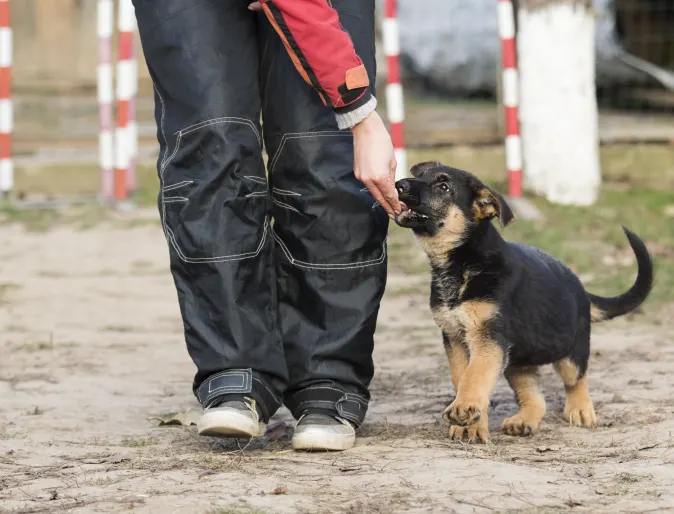Carver Street Animal Hospital

Resources
Oral Hygiene Tips
There are MANY different products out there designed to "help" care for our pet's teeth and it can be overwhelming to figure out what is the best choice. Below is a link for a site that contains products endorsed by the Veterinary Oral Health Council.
Caring for our pet's teeth can help with bacteria, gum disease, and systemic health and decrease the need for professional oral health care
Remember - starting slowly and early helps a lot. Never use human toothpaste for your dog or cat
Below are resources to better care for your pet's oral hygiene
Cat Dental Health & Tooth Care : How to Brush Cat Teeth
Watch this video for tips on how to brush your cat's teeth.
Cat Tips
We all know how difficult it can be to lose weight once it is there. Our cats are no different. In fact, they may be even harder! Below are various ideas to help your cat stay healthy...... and even stay entertained.
Don't forget to look at the OSU indoor cat behavior site for other ideas. You can find the link under our trusted link tab.
Recommended Cat Toys & Play Tools
Category:

Feline House-Soiling
Cats
House-soiling is one of the most common reasons why pet owners abandon or relinquish their cats. Unfortunately, these cats frequently end up in shelters where they oftenare euthanized. House-soiling can be a complex problem to solve, but there are ways to prevent, manage, or resolve feline house-soiling behaviors. Your cat does not urinate or defecate outside the box due to spite or anger towards you, but because its specific physical, social, or medical needs are not being met.
Cats & Carriers: Friends not Foes
Watch this video for tips on how to get your cat into its carrier.
Tips for Taking Your Cat to the Veterinarian
Watch this video for tips and tricks on taking your cat to the veterinarian.
Oral Hygiene Tips
There are MANY different products out there designed to "help" care for our pet's teeth and it can be overwhelming to figure out what is the best choice. Below is a link for a site that contains products endorsed by the Veterinary Oral Health Council.
Caring for our pet's teeth can help with bacteria, gum disease, and systemic health and decrease the need for professional oral health care
Remember - starting slowly and early helps a lot. Never use human toothpaste for your dog or cat
Below are resources to better care for your pet's oral hygiene
Oral Hygiene Tips : How to Brush a Dog's Teeth
Watch this video for tips on how to brush your dog's teeth.
New Puppy Tips
Helpful Tips for Making Your New Family Member's Transition and Yours as Easy and Fun as Possible
The information below can be viewed or downloaded as needed. We hope that these tips will allow you and your new puppy to adjust well. The guides below are supplemental to your puppy visits with our veterinarians. The puppy kit you receive at your first visit will also contain a wonderful DVD guide as well as other important information. Our veterinarians are always willing to talk and give you extra support in any way they can.
It can be helpful to research what puppy would be right for you and your family before starting on your quest. Below are Puppy Pre-Selection Books that you might want to look at before searching for your next family addition. In addition, there are books to help you in raising your puppy.
Puppy Pre-Selection Books
The Perfect Puppy - by B.L. Hart
The Right Dog for You - by D.F. Tortora
The links below have video blogs and tips for puppy training
Pet Trainers
Local Pet Trainers and Training Classes
When selecting a trainer, it is recommended that you use a trainer that uses only positive, gentle, reward-based techniques. A trainer that is certified by APBT (Association of Pet Dog Trainers) or CCPBT (Certification Council for Professional Dog Trainers) will be schooled in these techniques. The following is a list of area trainers recommended with the above specifications in mind.
Wake County SPCA Molly Stone (staff behavior expert, in-home training for dogs and cats)
(919) 772-2326, ext. 2096
Family Paws (in-home consults for training and behavior; expertise in dogs and children - dog and baby/children classes in N. Raleigh) Jen Shryock CDBC
In Good Hands (in-home training, dog walking) Chris O'Connor
Paws4Ever (private and group lessons in Mebane) Julie Jenkins
919-304-2300, ext. 102
Paws in Hand Dog Training (in-home training; group classes and doggie day school training in Chapel Hill) Barbara Long, CPDT-KA
Pet Behavior Help (classes or individual training at Chapel Hill/Durham locations) Lisa Brockmeier, Amanda Stipe www.petbehaviorhelp.com 919-270-2010
Topline K9 Solutions (in home training: group and individual classes in Raleigh) Sylvie Pleasant
Puppy Classes (central Durham location, morning classes)
Clare Reece-Gore, APDT [email protected]
Linda Tilley 919-528-1629
Cheery Dogs (in home training, group classes) Jane Marshall CPDT-KA
What to Expect
As you search for a veterinary facility, we believe you should expect high-quality care as well as great service. Our goal has been to assemble a veterinary health care team committed to providing exceptional client service and excellent veterinary health care. Our commitment to our clients is to not only provide a full-service clinic but to also offer a caring and pleasurable experience. Your pet is very important to us.
Your pet's annual vet check-up will include a total physical exam with a thorough investigation of your pet from head to tail. Because even the most cooperative pet may not readily go-along with a tooth brushing, your veterinarian may recommend an annual dental cleaning. Like you, your pet can lose teeth due to decay and neglect. It's a good idea to keep an accurate medical diary for your pet. You should include not only the vaccinations and procedures your pet receives at the vet, but also note their normal routines including their regular diet, treats they may receive, and any medications they take. Keeping track of small changes to their daily habits can help the veterinarian interpret changes in their medical tests. This diary will be especially helpful if you move and have to change to a new veterinary clinic.
Choose a veterinarian who is kind, compassionate, and takes the time to explain all the procedures your pet undergoes. It is most important to find a vet with whom both you and your pet feel comfortable. Choosing a clinic that is in a convenient location is a plus, as long as they have qualified staff, the facility is equipped to handle emergencies and perform radiography, surgery, and dental procedures. Because of the general risks inherent to anesthesia, your veterinarian will likely suggest a workup prior to your pet being anesthetized based on the age and general health of your pet.
Your veterinarian may refer you to a specialist should your pet have an unusual illness or require specialized surgery. We are very fortunate in the Durham area to have many specialists located within a reasonable distance.
Trusted Links
Carver Street Animal Hospital is aware of the vast amount of information available on the internet. Our team has taken the time and evaluated the following sites. We trust the information the listed websites provide to you, our client, and member of our family. This is a website to help you with questions you may have concerning your pet's health and well-being.
www.petpoisonhelpline.com 800-213-6680 - $39.00 fee
Indoor cat and also dog enrichment and behavior help
Independent website to review pet insurance
www.petinsurancereview.com/dog.asp
Estate Planning for Pets
This link will give you good ideas for estate planning for your pets. If this is a concern for you please check out the following site: Pet Trust Overview
Toxic and Non-Toxic Plants
http://www.aspca.org/pet-care/.../
Have you ever been concerned about explaining to your child about losing a pet? The link below will take you to the most popular books to help make it easier for you and your family.
http://childrensbooks.about.co...
Resources
American Animal Hospital Association www.aaha.org
American Board of Veterinary Practitioners www.abvp.com
American College of Veterinary Internal Medicine www.acvim.org
American Kennel Club www.akc.org
American Veterinary Medical Association www.avma.org
Association of American Veterinary Medical Colleges www.aavmc.org
Center for Veterinary Medicine- U.S. Food and Drug Administration www.fda.gov/cvm/
Canine Influenza Virus
Canine Influenza Virus is spread through:
Close proximity to infected dogs (it is airborne and can travel up to 20 ft.; Dog parks are ideal for spreading the virus)
Contact with contaminated items (bowls, leashes, crates, tables, clothing, dog runs, etc.)
People moving between infected and uninfected dogs
80% of all dogs that are exposed to the virus will contract it
The virus lives up to 24 hours on soft surfaces and up to 48 hours on hard surfaces.
Some exposed dogs will be subclinical carriers - meaning some dogs will contract and spread the virus without showing symptoms.
Dogs show clinical signs within 24-48 hours and can shed the virus for up to 28 days from exposure.
Most dogs will completely recover with proper treatment.
Dogs that regularly interact with dogs outside of their own family or frequent places where many dogs gather are most susceptible to exposure to Canine Influenza Virus.
Symptoms
Dry, hacking cough (similar to kennel cough)
Lack of appetite
Lethargy
Discharge from the nose or eyes
Fever (normal temperature is 101 - 102)
Prevention
The best protection is vaccination. There is now a single vaccination for both the H3N2 and H3N8 strains of the virus. The vaccination requires a booster shot two weeks after the initial vaccine. Vaccination provides the best chance of immunity within 7-14 days of booster shot.
Isolate sick animals and keep them isolated for up to 30 days after symptoms subside.
Practice good sanitation. Use a bleach and water mixture diluted to 1-part bleach x 30 parts water to disinfect common areas such as tables, bowls, leashes, crates, etc. Allow items to thoroughly air dry for a minimum of 10 minutes before exposing dogs to them. Bleach breaks down quickly so solution should be made daily. Keep in mind that bleach becomes inactive in UV light. If mopping use two buckets so as not to cross contaminate areas
Wash your hands frequently, ideally between handling different dogs. At the very minimum, hand sanitizer should be used between handling dogs.
Use disposable gowns or wipe down clothing and shoes with a bleach solution between dogs or after leaving an area where dogs congregate.
Food/water bowls should be made of stainless steel instead of plastic because scratched plastic is hard to fully disinfect.
Treatment
Treatment of Canine Influenza Virus requires veterinary assistance. If you believe your dog may have Canine Influenza Virus, please contact your veterinarian immediately. Untreated, the illness may progress to pneumonia or other, more serious problems. H3N2 can lead to severe secondary pneumonia which can cause extremely sick dogs with potential fatalities.
Most dogs take 2-3 weeks to recover from the illness.
Containment
Any dog suspected of having Canine Influenza Virus should be immediately isolated from other dogs and should not attend dog shows, day care, grooming facilities, dog parks, or other places dogs gather. Dogs are contagious for up to 30 days once they have started showing symptoms.
Contact your veterinarian to let them know that your dog may be showing symptoms of Canine Influenza Virus. If your dog is going to a veterinary hospital or clinic, call ahead to let them know you have a suspected case of Canine Influenza Virus. They may ask you to follow a specific protocol before entering the clinic to minimize the spread of the disease, including waiting in your car until they are ready to examine your dog.
Keep sick dogs at home and isolated from other dogs and cats until you are certain the illness has run its course (typically 3-4 weeks)




